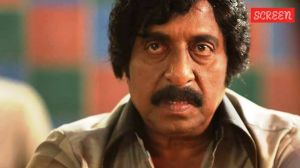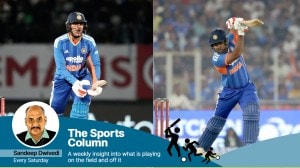The Song of Pariel
How to live with the reproachful ghost of Sylvia Plath.
How to live with the reproachful ghost of Sylvia Plath.
Book: Mad Girls Love Song
Author: Rukmini Bhaya Nair
Publisher: HarperCollins
Price: Rs 399
Pages: 421
An entirely imaginary conversation follows.
Editor of publishing house:
We can put this on the cover: J.M. Coetzee says the book is intelligent and lively.
Author: He does,but does he?
EOPH: He does,doesnt he?
Author: He says,I wont pretend that I havent struggled with it,which is odd,because it is a very intelligent and lively book,with lots going on all the time.
EOPH: Do you want your book to sell?
Author: To the right people.
EOPH: Arent the right people the ones who read Coetzee?
Author:They are.
EOPH: Dont you trust your book?
Author: Inasmuch as any author can trust any book. But Im not sure of the ethics of using
EOPH: Put it in the acknowledgements.
This reviewer should have found Mad Girls Love Song unputdownable. The Hours by Michael Cunningham? Jerry wept. The Ghost Road by Pat Barker? Likewise. And this one has Sylvia Plath in it. Great goddess Sylvia,a pale,reproachful moon who seems always to understand what youre thinking about and who never seemed to know a moment of fear when she was writing her poetry.
But the novel also has Ariel,Pari,Pariel,an arrow into the future,the spirit who hovers over it all and tells us her story and Sylvias and William Blakes and D.H. Lawrences. She has a lot of work to do,blighted spirit,as she lumbers from life to life,bearing on her shoulders the considerable weight of the authors erudition. Is this the mad girl whose love song we are supposed to be hearing? Or is that supposed to be Sylvia? Or both? One extruding the other? One reflecting the other? One the spirit,the other flesh?
No. Pari has flesh too and this flesh is incarcerated as mentally ill and a series of medical files are being constructed in a place called New Addenbrookes. You do not need to know,dear reader,that Addenbrookes Hospital is in Cambridge and that was where Plath met Ted Hughes and created one of the great poet-pairs of English literature. The Brownings are the other contenders. You do not need to know this but Rukmini Bhaya Nair does and you can be sure that almost everything she has written will have its source or its inspiration somewhere in the Plath oeuvre. Like Virginia Woolf,Plath maintained diaries although Hughes burned some of her papers after her death,an act that is still seen as incomprehensible. But its odd that when Vera Nabokov did the same to Vladimir,no one seems to have complained. Or even noticed. She says the letters were about their marriage. No one says: She says.
Plath and Hughes seem to have derailed us. William Blake will do likewise if we give him half a chance. He was mad. No,he was in the throes of a religious delirium and that,as every Indian knows,can drive you mad. Lawrence might derail us too. Frieda comes with him. And tuberculosis and sex and Lady Chatterley and censorship and the desire for Arcadia. Arcadia = place of simplicity and nature? Sylvia = of the forest?
This is an odd-shaped book and perhaps that is why I found it exhausting. Pari is not just an unreliable narrator,she is a will-o-the-wisp in a forest of meaning and literary allusions and illusions. Paris mother kills herself in a fur hat; is that from Plaths poem Cut? Nothing is as it seems so even when Lakshmi is spelled as Laskhmi on page 29 and Sylvia as Slyvia on page 8 and Jahangir as Janhangir page 38,youre left wondering whether this is some new word game,some trap set for
the unlettered.
Poets are retards, Pari says. Even the sharpest among them possesses an embarrassing belief in words,as if these bits and pieces made up of wind and vocal chords really matter,as if they are charms.
Why cant I believe Pari? It isnt because she uses words well enough to show that she knows that they matter. Not just because Bhaya Nair is a fine poet. Not just because Pari was/is/was not/could not be mad. But because by then Id turned as numb as a slave in a totalitarian state,I had slipped off the adamantine surfaces of this novel and I was in free fall.
Not her fault perhaps but mine.
Jerry Pinto is a poet and author
- 0152 minutes ago
- 0212 hours ago
- 0312 hours ago
- 0412 hours ago
- 0512 hours ago































